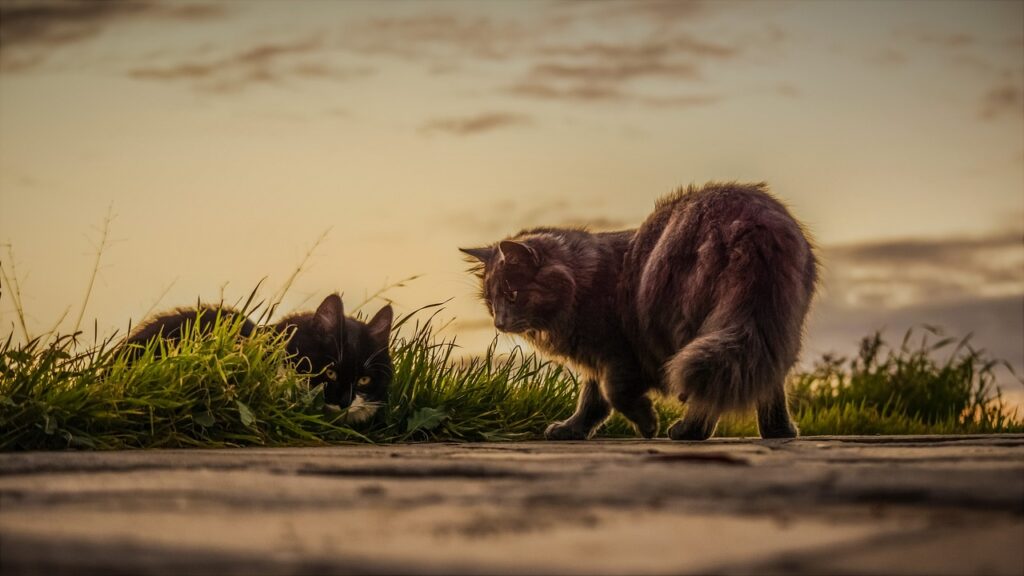Can Cats Eat Hummus? – No, They Can’t
Cats and hummus don’t blend well! While hummus is a healthy snack for humans, it’s a different story when it comes to our feline friends. It contains ingredients that are not cat-friendly, and hence it’s not suitable for them to consume. These ingredients can include garlic and lemon juice, which are toxic to cats, along with other spices and oil which are not a part of their natural carnivorous diet.
Is It Safe for Kittens to Consume Hummus?
Young felines, or kittens, are even more sensitive than adult cats. Giving hummus to kittens can lead to digestive troubles and potentially more serious health issues due to their developing immune systems and tiny bodies. It’s best to stick to kitten-formulated food to support their growth and health.
Risks Associated with Feeding Hummus to Kittens
Hummus can include ingredients that are particularly harmful to kittens. Their immature liver and undeveloped digestive system can find it challenging to process complex foods like hummus. Indigestion, allergic reactions, and even toxicity due to ingredients such as garlic, which is more harmful in smaller bodies, are potential risks.
Why Hummus is Not Recommended for Cats
Indigestible Ingredients
Cats have evolved to eat a high-protein, low-carbohydrate diet. Hummus, largely composed of chickpeas, incorporates a significant ratio of carbs and fiber, which are not part of a natural feline diet. While not immediately toxic, they can cause stomach upset in cats.
Potentially Toxic Substances
Many hummus recipes include garlic and onion, both of which contain thiosulfates, substances that can cause oxidative damage to red blood cells in cats, leading to anemia or even toxicity in higher doses. These ingredients are part of the Allium family and are known to be poisonous to cats even in small quantities.
Additives and Preservatives
Store-bought hummus often comes with a variety of additives and preservatives to extend its shelf life. While they keep the hummus safe for human consumption over a longer period, these substances might not be safe for cat consumption and can cause gastroenteric distress or more severe health issues.
Known Health Issues in Cats from Consuming Hummus
Cats that have consumed hummus may experience gastrointestinal upset, including symptoms like vomiting and diarrhea. In severe cases, the ingestion of toxic ingredients like garlic can lead to hemolytic anemia, recognized by pale gums, rapid breathing, lethargy, or a decrease in appetite.
What to Do If a Cat Has Consumed Hummus?
- Monitor the Cat: Watch for any signs of distress or unusual behavior. If you notice anything concerning, prepare to take further action.
- Contact a Veterinarian: If the cat shows any symptoms of illness such as vomiting, diarrhea, or lethargy, consult a veterinarian immediately.
- Provide Fresh Water: Ensure your cat has access to plenty of fresh water to help dilute any potentially harmful substances that have been ingested and to prevent dehydration.
Safe Alternatives to Hummus for Cats
Instead of hummus, offer your cat treats that are specifically designed for them. Many healthy and safe commercial treats cater to a cat’s dietary needs. You can also consider small pieces of cooked meat or fish without any added seasonings, which closely mimics their natural diet and provides the protein they require.
Conclusion
To sum it up, it’s clear that hummus is a no-go for our purring pals. It’s important for cat owners to be aware of what foods are safe and which ones to avoid to ensure their furry family members remain healthy and happy. Always consult with a veterinarian before introducing new foods into your cat’s diet.



